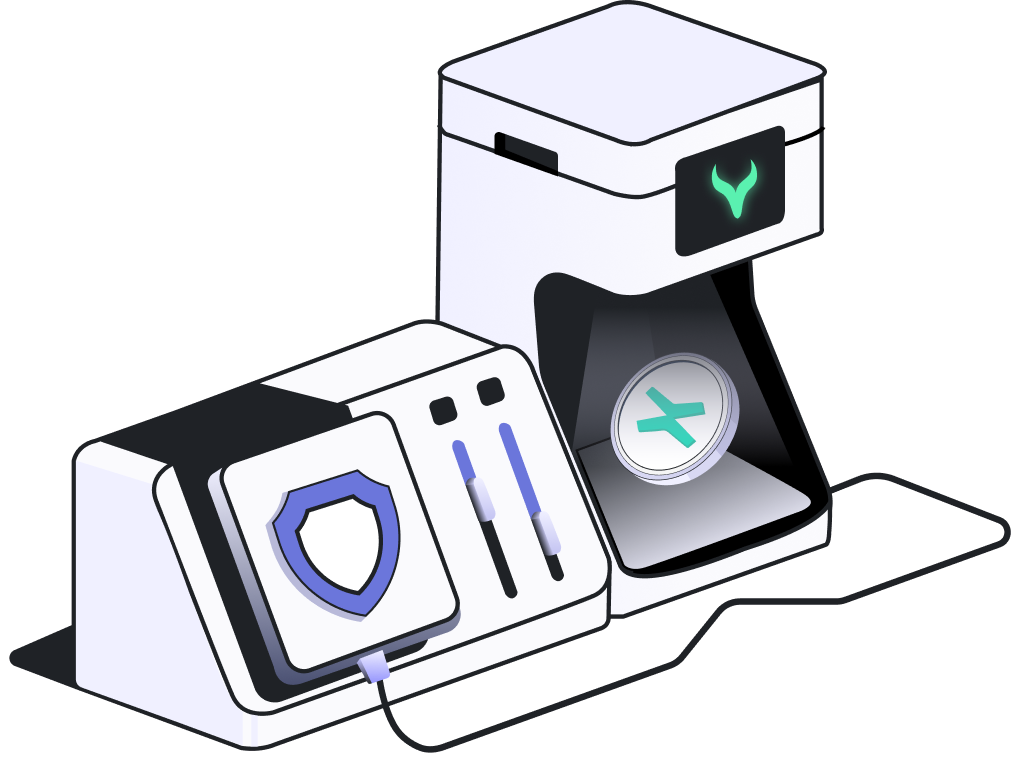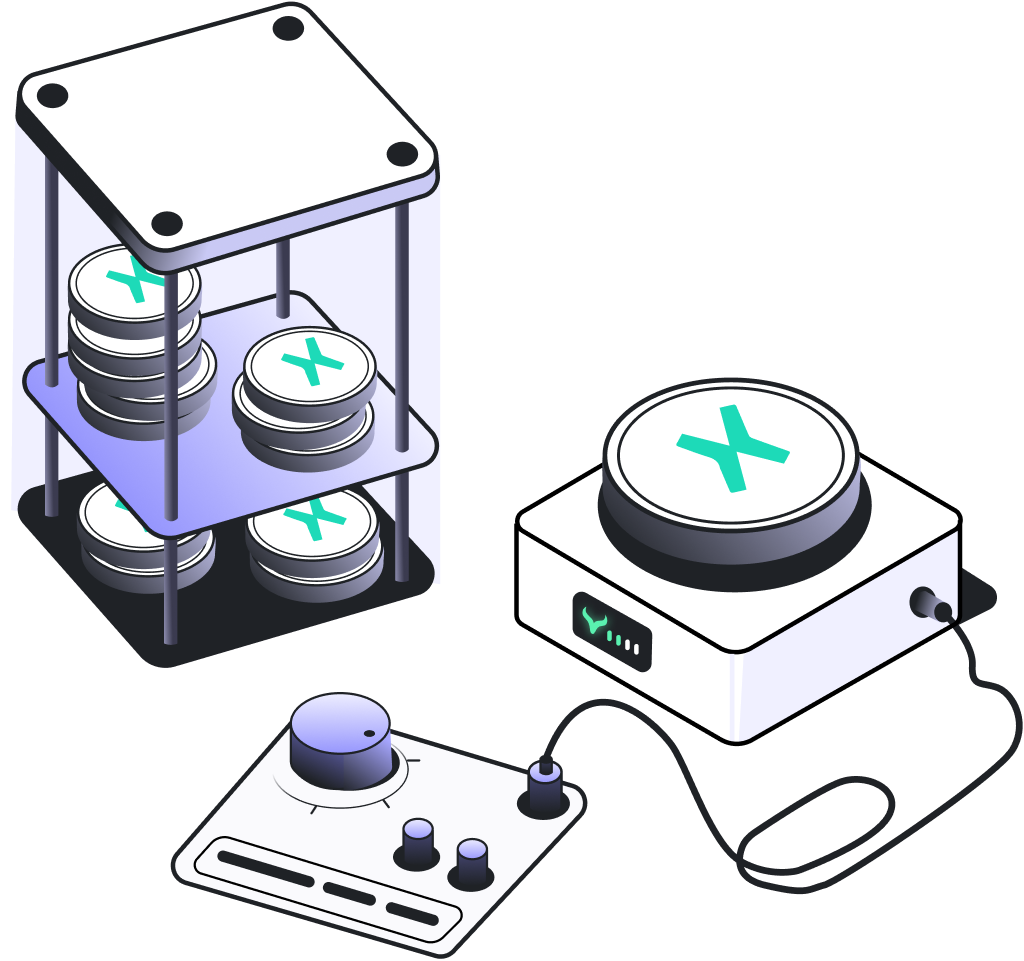Apply to become Hatom Node operator
Hatom Node Operators (HNOs) enable the liquid staking tokens that Hatom offers to users. The better the underlying operator sets are, the more robust, resilient, and performant the underlying protocol. Good operators boost the effectiveness of our business development efforts, increase community acceptance, and reduce protocol risks.
Hatom Liquid Staking in question, have strict requirements, expectations, and obligations from HNOs.
Hatom Liquid Staking Onboarding Process
Onboarding rounds are always open as Hatom seeks to balance decentralization, node operator profitability, and the overall security of Hatom’s liquid staking module. Currently, Hatom on MultiversX operator set is permissioned (i.e. operators are Confirmed and Chosen by the DAO to run validators).

The Hatom Node Operators (HNOs) can apply to be added to Hatom Liquid Staking Validators at anytime. Once the application is received and the due diligence process (that make sure every requirement is respected) is finished, a Poll is being set to Let the DAO vote either Yes or No the validator should be added to the Hatom Node Operator Network (HNON).
From this point on, user-deposited EGLD to be staked by Hatom start being allocated to validators which are run by node operators.

Disclaimer
Stake is currently allocated to HNOs on the following basis:
Operators with the least amount of active validators and > 0 validators in the registry buffer are prioritized.
This mechanism helps ensure that new operators are provided with EGLD immediately after joining, and effectively flattens stake across Hatom operators over time.
The voting process is governed by HTM tokens and follows the basis of majority.

Expectations & Requirements
Hatom is committed to maintaining extremely high-quality standards, that is why we’re working only with top-tier node operators with immaculate records in the most relevant areas:


Good Performance
At Hatom, we require the highest service quality, and we expect our Node Operators to be diligent in maintaining their nodes, and to perform well in order to provide sEGLD holders competitive returns.
Robustness and Resilience
Node Operators should be operating diversified hardware and software infrastructure and plan for adverse events. Risk management, business continuity planning, and especially proper processes around things like key management are of paramount importance.
Ethos Alignment
Node Operators should be aligned with the ethos and values of the MultiversX network, including joining efforts and give back to MultiversX network that they operate on, for it to thrive and flourish.
The only requirement is that Hatom Node Operators (HNOs) run and maintain their own infrastructure (i.e. no use of white-label services).
Currently, Hatom does not specify best practices or standards for EGLD validators in order to reduce the potential for single points of failure, however an exemplary level of proficiency is expected across the categories of:
Expertise with the inner workings and maintenance of node software, especially running validators at scale
Key Generation and management
Geographic and Jurisdictional distribution
Infrastructure and Client Diversity
Business Continuity
Onboarding Process Overview
As part of Hatom efforts for more decentralization on MultiversX; we will continue to confirm and add Validators as we work towards permissionless validation. If you’re interested in learning more about becoming a Hatom Operator, or have a specific question please send an email to: HNO@hatom.com

Frequently Asked Questions
As part of Hatom efforts for more decentralization on MultiversX; we will continue to confirm and add Validators as we work towards permissionless validation. If you’re interested in learning more about becoming a Hatom Operator, or have a specific question please send an email to:
What is a Node Operator?
A Node Operator is a person or entity that runs a node, which is an infrastructure that participates in a blockchain network by validating and relaying transactions and blocks. They’re professional staking providers who can ensure the safety of the funds staked through them.
How can I become a Hatom Node Operator?
In order to be eligible to become a Hatom Node Operator, you’d have to fill out the application form we’ve developed as a tool of assessment, as we’re committed to selecting only the best candidates with an immaculate track record, highlighting a great alignment with our core values of providing the best possible service to our users, and exhibiting a strong resilience in face of adversity coupled with proper risk management, to contribute to the overall success of the project.
How do rewards work for Hatom Node Operators?
Hatom takes a service fee on all MultiversX staking rewards collected through the platform. Then, Hatom splits this fee equally between the Hatom DAO and the Node Operators. All Node Operators receive the same service fee, and they are able to take out their rewards whenever they want.
Are there any risks associated with becoming an HNO?
Operating a node comes with some risks. For example, you may be required to hold a security deposit, which could be lost if your node fails to meet the network’s requirements. In addition, operating a node requires a significant time and resource commitment.
What are the responsibilities for a Node Operator?
The Node Operators are responsible for the consensus as they have a duty to maintain a reliable and responsive service by maintaining exceptional up-time in order to improve their overall rating, and they will be rewarded for their contribution to the block production.
Are there any costs associated with operating a node?
Validator nodes are required to have a stake, which is a significant amount of EGLD locked as collateral for the good behavior of the validator. Currently, the stake amount is set to 2500 EGLD. If the validator consistently misbehaves or performs malicious actions, it will be fined accordingly and lose EGLD, an action known as stake slashing, and also by having its validator status removed. This form of punishment is reserved for serious offences.
What to expect during the Assessment?
Once your application to become a Hatom node operator is submitted, our team will review it and evaluate its merits. If further inquiries are required, we’ll reach out to you to set up a call to discuss the necessary clarifications. Upon review of all the applications, the team will email the successful applicants to proceed with the eventual next steps.


















